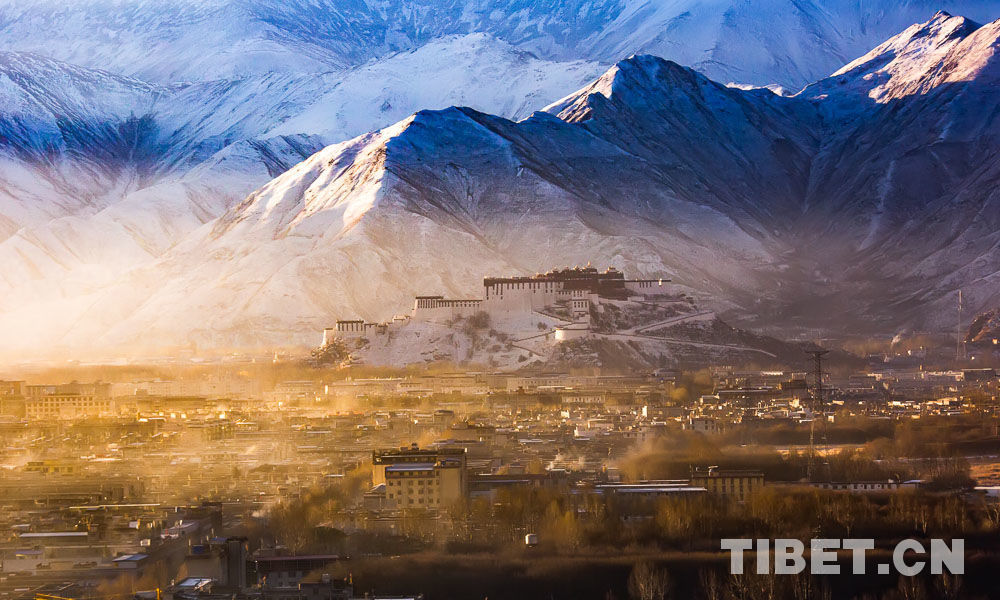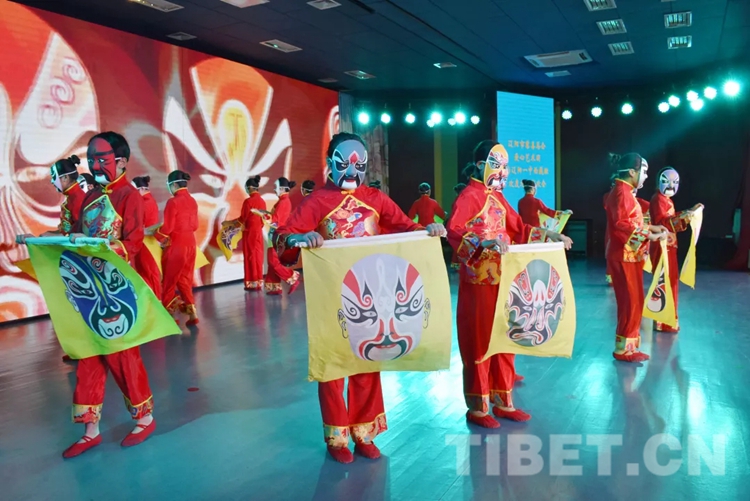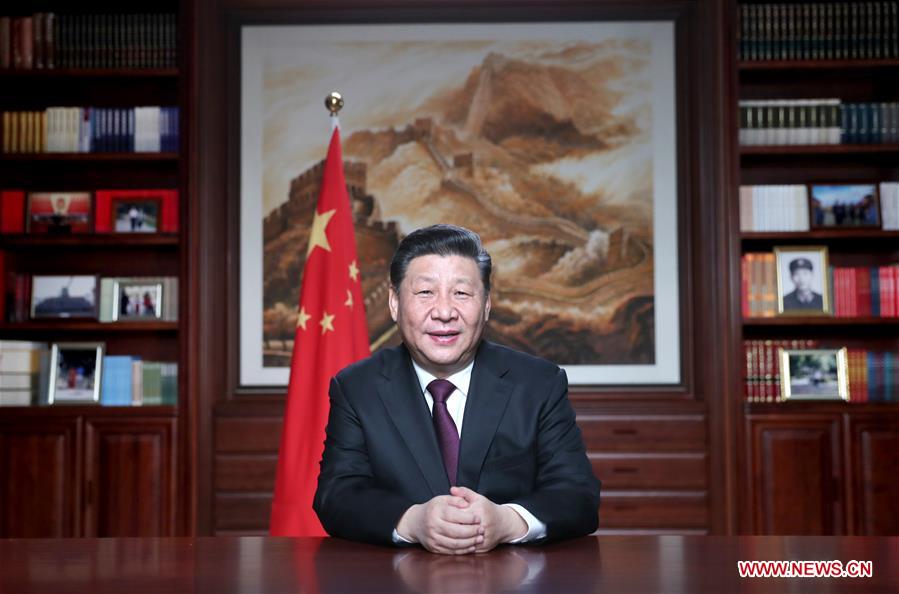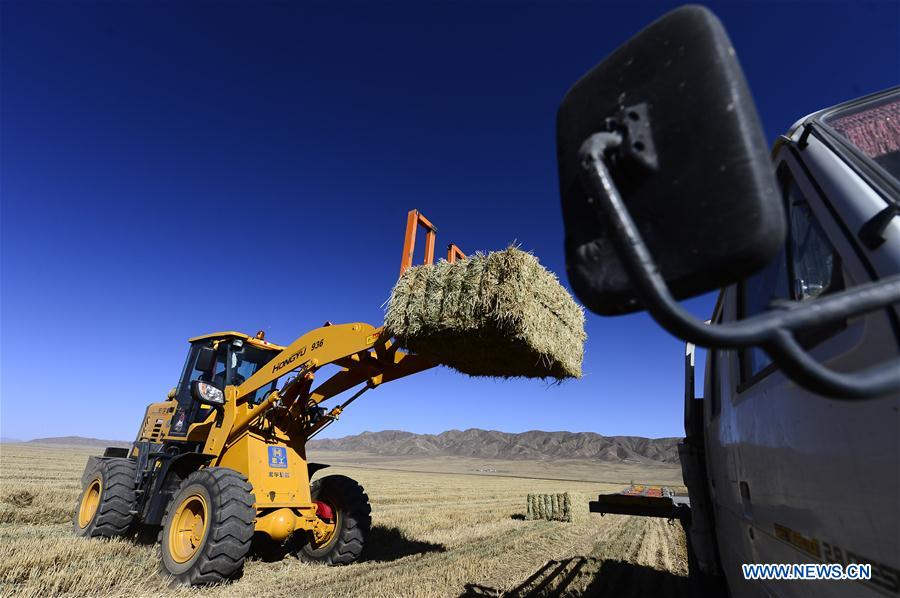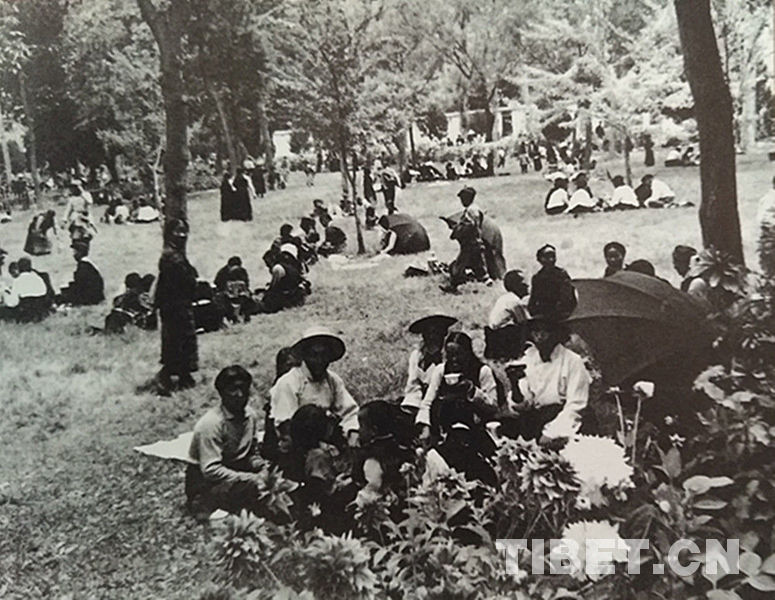Celebrating Chinese New Year in Europe
The spacious lobby of Rosengarten, a congress center in downtown Mannheim, Germany, was decorated with Chinese red.
Crowds gathered in front of exhibit booths where folk artists from China's northwestern Shaanxi province showcased their skills of paper-cutting, woodblock printing and calligraphy.
Nine-year-old Anja was holding her calligraphy work that reads "Shu Nian Da Ji" (A Happy Year of the Rat). "I've tried the tea ceremony, Go, and calligraphy. I will show this piece to my classmates and teachers at school," she said.
Artists from Shaanxi brought an evening gala later that night to local audience like Anja. It is a part of the "Happy Chinese New Year" cultural event taking place across the world. It is the also first time that the event comes to the Frankfurt consular district in Germany.
Zeng Shengli, Anja's mother, said she drove two and a half hours to attend the event. "It's not the first time we celebrate the Spring Festival with cultural activities like this, but the variety and quality of the show this year is really impressive."
A NEW TRADITION
This year's Spring Festival fell on January 25. While residents from and around Mannheim had the chance to enjoy the culture and history of Shaanxi, people in Berlin welcomed the art troupe from southwest China's Guizhou Province. A gala featuring singing, dancing, and music has offered the Berliners a glimpse of the musical traditions of ethnic minority groups living in Guizhou.
On January 15, for the ninth consecutive year, Berlin's historic Red Town Hall rolled out red carpet and lit Chinese red lanterns for the "Happy Chinese New Year" gala.
Sawsan Chebli, the State Secretary for the Berlin Government, said that hosting Chinese new year celebrations has become an important cultural tradition in Berlin, which also signifies the all-around cooperation between Berlin and China, particularly between Berlin and its sister city Beijing.
Addressing the opening ceremony of this year's gala in Berlin, Chinese Ambassador to Germany Wu Ken also stressed that cultural and tourism exchanges between the two countries play an increasingly crucial role in bringing people from two sides closer, and sound people-to-people ties lay the very foundation for bilateral relations.
For people in Belgrade, Serbia, celebrating Chinese New Year with lights and fireworks in the city center is just in vogue. On January 24, the countdown to Chinese New Year was staged at the Kalemegdan park-fortress in Belgrade where citizens gathered to enjoy in the second Chinese Festival of Lights.
A fairytale world of colorful flowers, flamingos, chariot horseman, Chinese dragons, lanterns and other light sculptures has been built in cities of Belgrade and Novi Sad. The event will last until mid-February.
Tasovac, a Belgrade citizen, said he learned about the light exhibition from local media and enjoyed it very much. "It was eye-opening," he said, "It was a great opportunity to allow us to feel the festivity of the Spring Festival here in Belgrade. I've always had an interest in Chinese culture."
At the British School Warsaw, a top-rated international school in Poland, Chinese teachers from Warsaw University of Technology were invited to introduce the custom and habits of celebrating the Chinese New Year to students from more than 70 countries.
Justyna Babik, a teacher at the British School Warsaw, said the celebration was a very enriching experience for the students. "I think it's important to celebrate different cultures, especially in an international school such as ours. We celebrate Chinese New Year every year and I'm sure we will continue to do so."
CLOSER TIES
Celebrating Spring Festival is such an important tradition for overseas Chinese that government officials from many European countries not only join the locals to celebrate, but also take the occasion as a chance to boost ties with China.
On January 24, British Prime Minister Boris Johnson participated in a "Lion Awakening Ritual" in front of 10 Downing Street by painting the eyes of the Chinese Lions during a performance. The office doorway was decorated with Spring Festival couplets, Chinese phrases of good wishes written on pieces of red paper.
In North Rhine-Westphalia, a Western German state, officials have made it a custom to record video messages addressed to the Chinese living in the region ahead of the Spring Festival.
Andreas Pinkwart, economic minister of the federal state, said in this year's video that the Year of the Rat represents qualities of reliability and persistence, and the ability to turn the unfavorable situation into a favorable one.
"These are characteristics that we particularly need in today's times when the world trade system is facing growing challenges," he said.
North Rhine-Westphalia is home to almost a quarter of all the overseas Chinese living in Germany.
Pinkwart said the relationships between North Rhine-Westphalia and China are "closely woven," as there are over 1,100 Chinese companies in the German state and over 1,000 North Rhine-Westphalian companies in China. In 2019, well-known Chinese smartphone brands such as Xiaomi, Oppo and Vivo announced their investment plans in the region.
Mayors of cities like Duesseldorf, Cologne and Duisburg all sent their Chinese New Year wishes through videos. All three cities have forged close relationships with China.
Thomas Geisel, mayor of Duesseldorf, said he hopes the city will maintain close exchanges with China in the coming year and expects the two sides to deepen dialogue in the face of common challenges such as climate change.
Tibet Stories
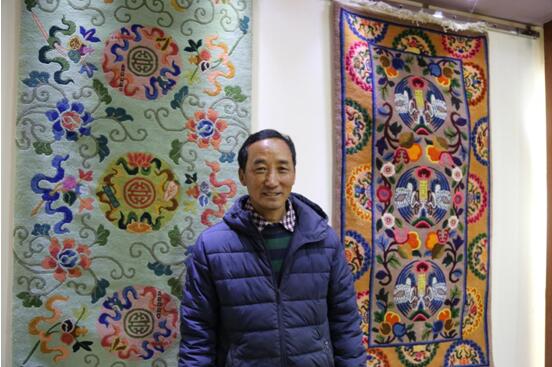
A tour of the Gyantse Carpet Factory: The legacy of a traditional handicraft
The woolen knitting handicraft of Tibet enjoys a long legacy.
Editor’s Choice
- Snow leopard and leopard photographed in Batang, Sichuan Province
- World's highest county included in State Grid electric coverage
- The 7th Beijing International Seminar on Tibetan Studies
- Contributions are welcome from you
- Symposium for anniversaries of China's Tibet magazine and China Tibet Online held
